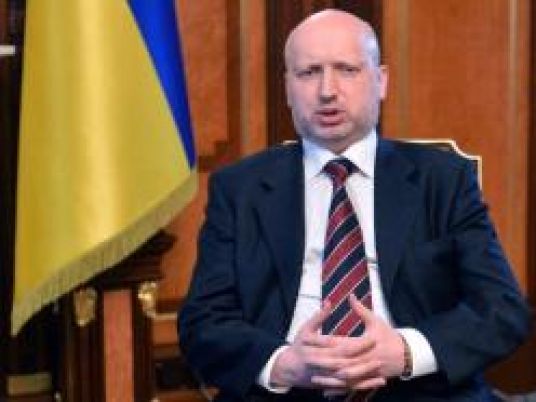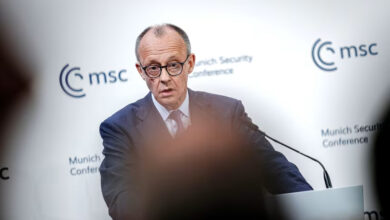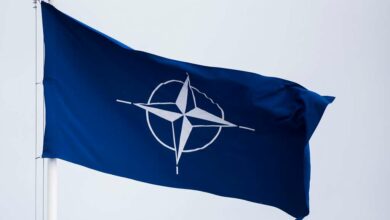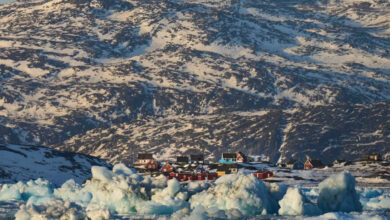
Ukraine's acting president on Thursday promised not to prosecute pro-Russian militants occupying government buildings if they lay down their arms and end their seige.
"If people lay down their arms and free the administration buildings… we guarantee that we will not launch any criminal proceedings against them. I am ready to formalise this in a presidential decree," acting President Oleksandr Turchynov told lawmakers.
The pressure on Kiev's interim leaders — already faced with a punitive 80-percent hike in the price they have to pay for Russian gas — mounted still further when pro-Kremlin militants seized several state buildings and proclaimed their independence.
The standoff now revolves around the administration centre in the bustling industrial city of Donetsk and the security service headquarters of Ukraine's eastern-most region of Lugansk.
The Donetsk activists have already pronounced the creation of their own "sovereign republic" while the their Lugansk counterparts have broken into the security building's weapons cache and are now armed with dozens of machine guns.
In a relevant context, Russia's Foreign Ministry accused NATO on Thursday of using the crisis in Ukraine to boost its appeal to members and justify its existence by rallying them against an imaginary threat.
Russia and the West are locked in a Cold War-style stand-off overUkraine and NATO Secretary General Anders Fogh Rasmussen told Moscow to pull back troops from the Ukrainian border or face consequences if they intervene.
The ministry said Rasmussen's remarks were confrontational and that in recent months he had not offered "any constructive agenda" for Ukraine, adding that it was adding to instability in the region.
"The constant accusations against us by the secretary general convince us that the alliance is trying to use the crisis in Ukraine to rally its ranks in the face of an imaginary external threat to NATO members and to strengthen demand for the alliance … in the 21st century," it said.
NATO has suspended all practical military and civilian cooperation with Russia, although it said political dialogue could continue at ambassador level or higher, since Russia incorporated Ukraine's Crimea region last month.
The Western military alliance has also limited access for Russian diplomat's to its headquarters and is reviewing a 1997 co-operation agreement with Russia and subsequent Rome declaration of 2002 that prevented it from setting up bases in eastern and central Europe.
Russia has responded by accusing NATO of having a Cold War mentality and has expressed concern over the possibility of deploying the alliance's troops in eastern Europe permanently.



